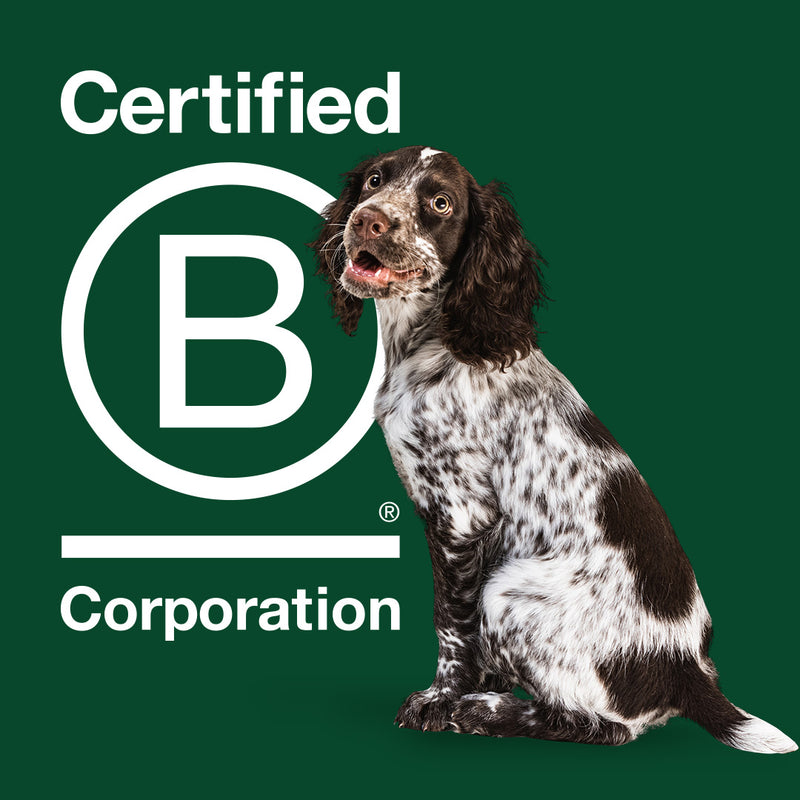If your dog is constantly scratching and biting themselves you may be at your wits' end trying to figure out what is causing this incessant itching. This problem is actually quite common and countless dog parents find themselves in search of a cure.
Dog itchiness can be caused by a huge range of problems, but allergies are a common culprit. Giulia D'Ignazio, groomer and owner of Brandy’s Canine Grooming notes, “The most common food allergens are beef, chicken, dairy & wheat.”
Keep reading to learn more about other common causes of scratching and biting. Included below are also helpful tips to soothe your dog’s skin to help ditch the itch for good!
5 Common Causes of Constant Scratching and Biting
Common causes of a dog constantly scratching and biting himself include allergies, skin problems, and parasites. It is often difficult to identify which one is the culprit but with some patience, you’ll be able to find and remove the problem.
1. Allergies
Allergies can be a frustrating challenge for both dogs and owners. These occur when the dog’s immune system goes into overdrive when exposed to allergens.
Dogs can get allergies at any age but they typically show up between 1-3 years of age.
The most common types of allergies include:
- Food: Food allergies are surprisingly common. If you’ve introduced a new food to your dog’s diet (including treats), it may be causing skin irritation.
- Environmental: Pollen, certain grasses, and mold can cause allergies. You can use Earth Rated’s hypoallergenic wipes for routine cleaning, to remove dirt, debris, or allergens from your dog’s paws and coat to help keep skin irritation at bay.
- Fleas: Dogs can be allergic to the saliva of fleas, also referred to as flea allergy dermatitis (FAD).
- Contact: If you recently switched detergent or cleaning supplies, your dog may be reacting to the new chemical.
- Insect bites: Just like with humans, dogs can also be allergic to bites from insects including bees and ants.
- Medications: Medications including antibiotics or vaccines can cause allergic reactions.
It often requires quite a bit of trial-and-error to determine what your dog is allergic to, which can take several weeks.
2. Fleas and Mites
Parasites of all sorts can send your dog into a scratching frenzy. This scratching often leads to your dog sadly doing more damage to themselves than to the parasites!
Common symptoms of a parasite infestation include:
- Frequent scratching
- Biting their skin
- Hair loss
- Irritated or red skin
- Inflamed skin
Additionally, mange which is caused by tiny mites can also lead to your dog scratching and biting themselves excessively.
To prevent parasites, flea and tick prevention are highly recommended. A simple medication can prevent fleas and other parasites effectively.
If your dog already has a parasite, you’ll need to take a trip to the vet. They will be able to prescribe medication to remove the parasites. Flea and tick preventative medications don’t always get rid of parasites once the infestation has occurred.
3. Skin Conditions
Skin conditions, such as dermatitis and hyperpigmentation, can lead to persistent itching. Symptoms vary greatly depending on the exact underlying condition, but they often include:
- Redness
- Skin inflammation
- Hair loss
- Discharge
- Shedding of the skin
Working closely with your vet to identify and treat any underlying skin condition your dog may have is important. Often, these skin conditions are chronic and require careful management (and sometimes medication) throughout your dog’s life.
4. Dry Skin
Just like us, dogs can get dry skin. It’s hard to tell if dry skin caused the scratching or if the scratching caused the dry skin. Often, you’ll need to treat your dog’s dry skin either way.
Dry skin is often pretty noticeable. You’ll see flaky dandruff and redness and the skin will feel dry. Regular bathing can help hydrate the skin if you use conditioning grooming supplies. Sometimes, supplements like omega fatty acids are recommended, as these can help the skin repair and remain hydrated.
5. Skin Infections
Infections tend to be itchy, whether they’re caused by bacteria or yeast, excessive scratching is a huge indicator of them.
Other symptoms of skin infections include:
- Redness
- Swelling
- Discharge
- Foul odor
Keeping your dog’s skin and coat clean can prevent skin infections. If your dog is prone to ear infections, you can use ear wipes to clean inside their ears to remove dirt and grime.
But if your dog has an infection, a trip to the vet is in order. Giulia notes that if your dog’s scratching is caused by an infection, the vet can prescribe some cream or antibiotics.
Effective Home Remedies and Treatments
While veterinary care is essential for addressing underlying issues, several home remedies and treatments can help manage your dog's discomfort and potentially even eliminate the problem before it begins.
Regular Grooming
Grooming plays an important role in maintaining your dog’s skin health. Regular brushing and bathing help remove any dirt and dander, reducing skin irritation and preventing infections.
While grooming, check for signs of irritation or parasites. This can help you identify what is causing your dog’s scratching to remove it.
Use a quality dog shampoo like one from the Earth Rated Grooming Line and avoid human shampoo that can dry out your dog’s skin, leading to even more itching. Always dry your dog thoroughly after bathing, especially their ears and any skin folds (which are prone to bacterial infection when left moist).
Discover our complete grooming collection for a happier, healthier pet.
Explore Now

Diet and Nutrition
If you suspect your dog has a food allergy, the best course of action is to remove it from their diet or switch to a hypoallergenic diet.
Giulia advises to “stick with one single protein for a few weeks and then slowly introduce other proteins and see if any of them affect the dog’s skin - this is known as the elimination diet.”
A balanced diet is also important for skin health. If your dog isn’t receiving all the nutrients they need to keep their skin healthy, they may be more likely to develop skin issues.
Dog food formulas designed explicitly for skin problems often include added fatty acids and other ingredients that may treat skin health.
Environmental Management
Reducing environmental allergens can be challenging, but a little bit of cleaning can go a long way!
To get you started you can:
- Wash your dog’s bedding regularly, as hot water can kill parasites and eliminate allergens.
- Consider using hypoallergenic bedding if you believe your dog may be having an allergic reaction to their bedding.
- Vacuum regularly and consider using an air filter to remove as many environmental allergens as possible.
- Clean and disinfect your dog’s food and water bowls. Stainless steel bowls are a good option because plastic bowls can develop small scratches over time, which can harbor bacteria.
Say Goodbye to Scratching
Your dog’s constant scratching and biting can be frustrating, especially if there isn’t a clear cause. But dogs scratch excessively for a reason, and the tricky part is identifying what that reason is!
Common causes of scratching and biting include allergies, parasites, and skin conditions. Some of these can be treated at home, while others may require veterinary help. Always speak to your veterinarian if you are concerned about your dog’s sudden scratching sessions.
From wipes, to sprays, to shampoos, keep your dog comfortable, fresh, and clean with the Earth Rated Grooming Collection .












